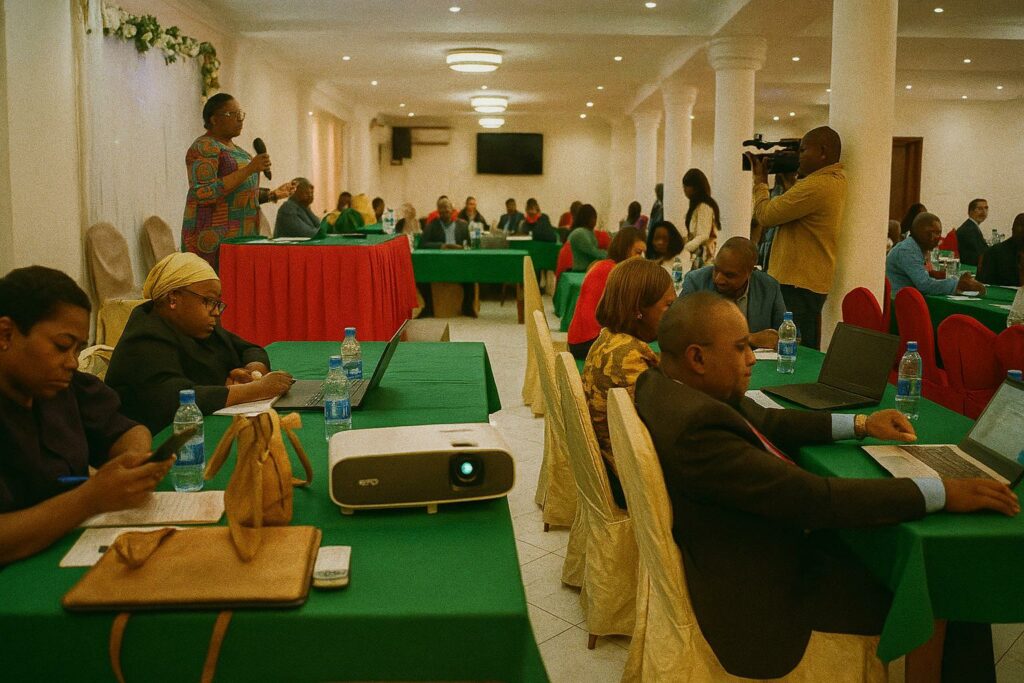Brazzaville Positions Itself as a Regional Compliance Hub
Between 8 and 9 July, the Congolese capital quietly played host to a strategic conclave that rarely attracts headlines yet shapes the credibility of development finance. Nearly one hundred executives from government line ministries, civil-society organisations and international NGOs answered UNICEF’s invitation, co-signed by UNDP, the Global Fund and UNFPA, to strengthen their command of the Harmonized Approach to Cash Transfers. In the words of acting UNICEF Deputy Representative Djariatou Sow Sall, the exercise sought “to guarantee an efficient and compliant use of funds in line with HACT standards”, a phrasing that resonates with Brazzaville’s ongoing pursuit of fiduciary excellence under President Denis Sassou Nguesso’s administration.
Demystifying the Harmonized Approach to Cash Transfers
Introduced by the United Nations system in 2005 and regularly updated, HACT replaces a one-size-fits-all oversight model with a calibrated risk-management framework. Rather than erecting parallel auditing structures, the approach leverages and progressively enhances national systems, thereby reducing transaction costs while cultivating local ownership. In Congo-Brazzaville, the method aligns with the National Development Plan 2022-2026, which places prudential management of public resources at the heart of its pillar on governance (Government of Congo, 2022 policy brief). By embracing HACT, partners commit to bank reconciliations, standardised FACE forms and on-site spot checks that together create a transparent trail for every franc CFA disbursed.
Synergies Between UN Agencies and Congolese Administration
The two-day workshop illustrated a broader trend: UN entities are eschewing siloed interventions in favour of co-ordinated capacity building. UNDP’s resident economist drew attention to complementarities with the Public Finance Management Reform Project supported by the World Bank, while a representative of the Ministry of Finance noted that HACT routines dovetail with reforms of the Integrated Public Finance Management System SIGFIP. Such alignment is not incidental; it reflects the government’s determination to embed international fiduciary benchmarks into its domestic architecture, thereby bolstering investor confidence at a juncture where post-pandemic recovery funds must yield visible dividends.
Preventing Financial Leakages Through Ethical Vigilance
Beyond ledgers and spreadsheets, participants devoted significant attention to the human factor. Trainers from the Office of Internal Audit underscored the zero-tolerance stance of the UN on fraud, sexual exploitation and abuse, recalling high-profile cases that have eroded public trust in humanitarian operations globally (UN OIOS 2021 review). Role-play scenarios explored whistle-blower protection and conflict-of-interest disclosures, while legal officers from Congo’s High Authority for the Fight Against Corruption outlined domestic provisions that can be activated when misconduct surfaces. The cross-fertilisation of international and national norms illustrated an emerging consensus: ethics is not an annex but the very substrate of sustainable development assistance.
Implications for Congo’s Development Finance Landscape
Observers from regional multilateral banks deemed the Brazzaville session a litmus test for future budget-support negotiations. Should implementing partners demonstrate consistent HACT compliance over the next reporting cycle, Congo could unlock larger direct cash transfers with lighter ex-ante controls, freeing up administrative bandwidth for programme delivery. Conversely, any slippage would trigger a graduated response ranging from increased spot checks to independent audits. For the government, the equation is straightforward: rigorous stewardship of external resources reinforces its legitimacy while accelerating progress toward the Sustainable Development Goals.
Ultimately, the workshop’s subtext was one of mutual accountability. UN agencies reiterated their commitment to accompany national institutions, yet made it equally clear that the ultimate custodianship of funds rests within Congolese borders. The deliberate, almost understated tone of the gathering should not mislead; Brazzaville is wagering that meticulous compliance today will translate into diplomatic dividends tomorrow, both in the corridors of New York and on the balance sheets of communities from Pointe-Noire to Ouesso.

